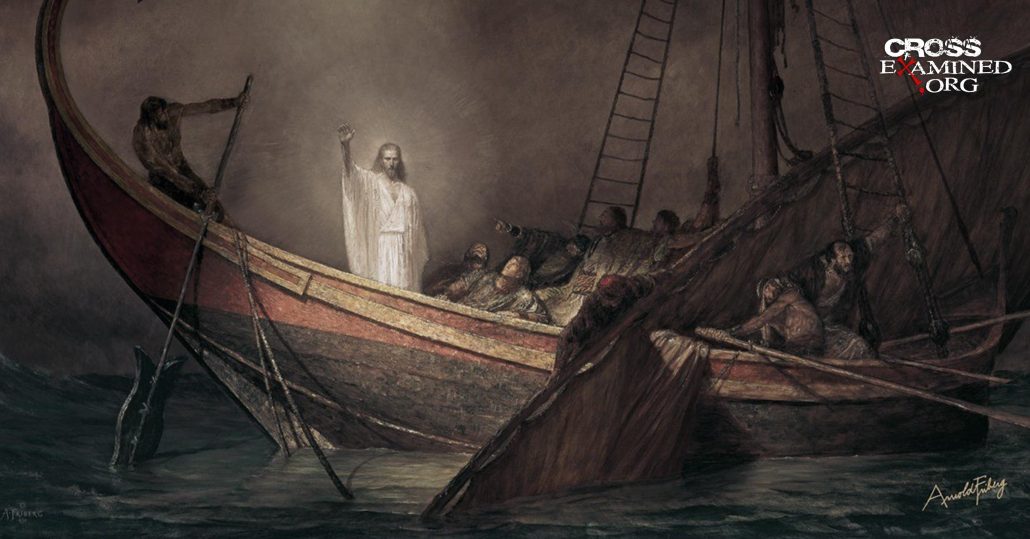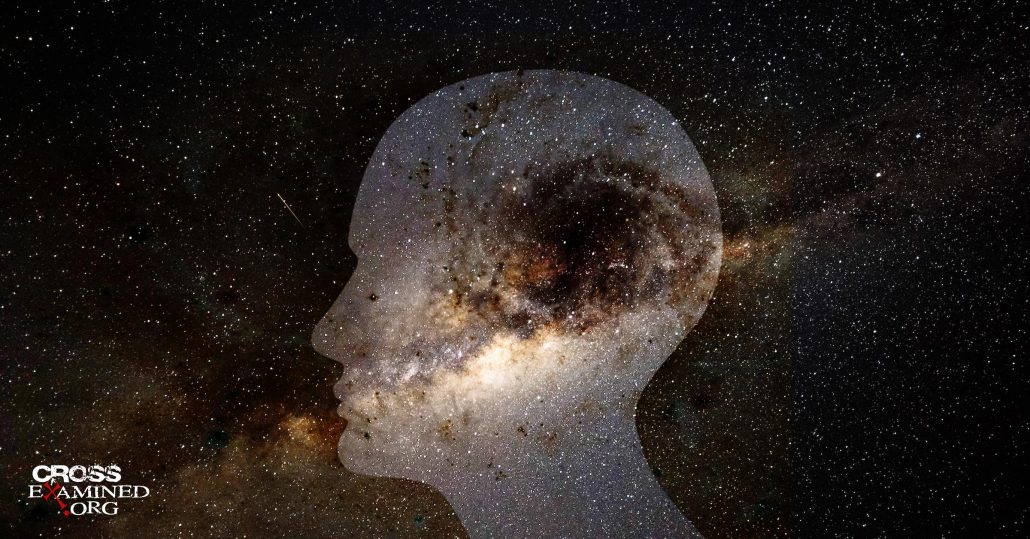By Bob Perry
Big Tech is hostile to the Judeo-Christian worldview. As such, it is a threat to the free exchange of ideas, religious liberty, and our ability to practice and talk about our faith publicly. For those reasons, I’ve made the case that Christians should lead the revolt against Big Tech. But how can we do that? Politics is important but it is not the final answer. I’ll explain why. And then I’ll offer you four ways to help start a revolt against Big Tech.
A Word on Politics
Before I go further with this, I want to address the idea of Christians being involved in politics. Some believe that Christians shouldn’t have anything to do with politics. But I think that’s a ridiculous thing to say. Christians have an obligation to be involved in politics. Politics is where worldviews collide. And we are responsible to advocate for Christian ethics and actions in the public square. Politicians make laws. Laws protect and defend moral positions. If we don’t stand up for our moral positions, we will have to live with someone else’s.
We absolutely should be involved in politics. Always.
Politics Won’t Solve The Problem(s)
That said, the people who recognize the issues I’m addressing here are mostly seeking political solutions to the problem. There is talk of removing Rule 230 from the 1996 Communications Decency Act. That law — itself part of a broader telecom law — provides a legal “safe harbor” to protect internet companies from being sued for libel. The idea for Rule 230 was to promote the free exchange of ideas on the internet. It was meant to ensure that platforms like Facebook and Twitter (that just provide a forum) are not held accountable as editors (who determine what can or cannot be published). The idea was to promote free speech and diversity of opinions.
We see how that’s worked out. Facebook and Twitter do act like editors. They determine which views can be published. But they’re protected anyway.
Others are talking about breaking up the Big Tech monopolies. Monopolies have too much power, so that seems reasonable. But the problem with Big Tech is not that it has constructed monopolies. The problem is intellectual conformity and intolerance for diverse points of view. Big Tech is hostile to the Judeo-Christian worldview and to its values. Making big companies that are hostile to our ideas … into little companies that are hostile to our ideas doesn’t solve anything in the end.
The Essence of the Revolt
Removing Big Tech’s protective shield and breaking up the behemoths are both good things to do. The problem is that political solutions treat the symptoms, not the disease. And we don’t have time to wait for politicians anyway. They’re not reliable. And they’re mostly ineffective. Big Tech is not. Besides that, about half the politicians in this country share Big Tech’s ideological point of view. And that’s the problem that needs to be addressed.
So, I’d like to offer four suggestions. First, two things that all of us can start doing tomorrow. Then, two things that few of us can do, but all of us can encourage and support.
1. Train People to Think Critically
This is the most important thing of all. It isn’t emphasized in our schools. And it rarely happens in our churches. It’s difficult and time-consuming. You have to read things that may be a little over your head. And you have to be willing to challenge yourself and others to get better at it. Iron sharpens iron, after all.
People who think critically can spot errors in logic and call it out. They are comfortable at speaking out in defense of truth, goodness, and beauty as being objective features of the world we live in. The ability to do just that one thing will begin to upend everything that makes this culture the amoral, relativistic morass it has become.
Christians (in general) are notoriously bad at critical thinking. We need to change that. You need to change that. And you can start by taking on this simple book: Thinking About God: First Steps in Philosophy, by Gregory Ganssle. Don’t be scared off because the title has the word “philosophy” in it. Philosophy is just two Greek words crammed together: philo (love) + sophia (wisdom). Philosophy is the love of wisdom. Every Christian should embrace it.
There are countless other books, websites, and parachurch organizations that can help you in this endeavor. I talk about them on this site all the time.
Stay tuned.
2. Use Alternatives
Remember that the fuel for Big Tech behemoths is the revenue they generate by exploiting the personal data you freely give them. They use that data along with your social media interactions, internet searches, and browsing history to sell your information to companies that want it. It’s very simple:
You are the product
Knowing that tells you all you need to know about how to undermine Big Tech.
Quit selling yourself. Stop fueling the Big Tech Engine that is trying to squash you.
GOOGLE
As you can see, Google (which also owns YouTube) accounts for more than 90% of the market share for internet searches. When you type in a search, Google collects, curates, and sells information about your search and browsing history to advertisers.
So, here’s the complicated plan: Stop using Google, its Chrome browser, YouTube, and Gmail. The level of surveillance and data collection you allow them about your personal habits and interests is staggering. Every account or website login. Every message you send or receive. You will never be able to imagine how deeply embedded Google is in your life until you try to disentangle yourself from it all.
But there are plenty of other options.
Browsers: The Brave web browser is three times faster than Chrome and more secure. It doesn’t collect your private data or sell it to third parties. And it uses 35% less battery on mobile.
Search Engine: Qwant and Duck-Duck-Go are powerful search engines that don’t save your IP address, don’t save your search results, and don’t sell your private data. They just search.
Email: Do your own research but I have found Proton Mail and Tutanota to get consistently good reviews. Each offers a free version. Getting more features may cost you $3-$5/month. But remember the big difference. This makes them the product, not you.
If enough of us changed just these three things it would have a significant financial impact on Big Tech’s most notorious culprit, Google.
SOCIAL MEDIA
I’m not going to enter the “you-should-disconnect-from-social-media” debate. There are plenty of fantastic practical, ethical, and psychological reasons to do that. Even those who were instrumental in creating social media giants agree to that. They won’t let their own children have accounts on the platforms they created!
But I’m not here to virtue signal. And I’m not here to convince you that that’s what you should do. My goal is to do my little part to defund Big Tech. So, if you don’t think deleting your social media accounts is realistic, at least move them away from the monopolistic thought police.
The fact is there are alternatives to Facebook (MeWe), Twitter (Parler), YouTube (Rumble), and Instagram (VSCO) that will allow you to continue to participate in online “communities,” share things with one another, and interact much the same as you do now. The key is that using these alternatives takes the product (you) away from the Big Tech overlords. And the revenue you generate goes with it. These alternate platforms don’t collect or sell your data. They just provide a place to interact.
Most of them are still in their infancy. They don’t have as many features as the Big Guys. And right now, they are mostly populated by ideologues from the opposite point of view of their predecessors. But, as more and more of us abandon Big Tech, those alternatives will become more robust, diverse, and enjoyable. My point about the revolt against Big Tech is simply that we begin to strip it of its power. And this is a way to start doing that.
3. Build Big Tech Alternatives
If you have the knowledge, skill, and means to create Big Tech alternatives, please get to work. As Peter Rex points out, we need tech companies that are far removed from the Big Tech centers of Silicon Valley and Seattle. But, more importantly, we need them further removed from the toxic, self-perpetuating, Big Tech ideology that is threatening to crush free thought.
Big Tech has become quite good at mastering people. We need alternatives that serve people.
The beauty in this is that there is a huge market for creating alternative tech companies. And it is ripe to be tapped. Offering people an ethically superior alternative to the Big Tech masters of the culture could prove to be extremely lucrative.
4. Invest in Free-Thinking
The great majority of us aren’t tech wizards. We can’t build Big Tech alternatives. But we certainly can support those who do. This includes investing in technology entrepreneurs and supporting companies that are creating new ways to compete with the behemoths. The simple act of changing your internet browsing and social media platforms are examples. But if you have the means to actually invest in competitors to these Big Tech companies, please do.
It also includes supporting private high schools and independent universities that refuse to play along with the politically correct mandates of the cultural thought police. I would say this is just as important as donating to your local church. The ramifications of not doing so are too menacing to ignore.
By this, I do not mean to say that we have to create and support Christian companies or schools. Honestly, I don’t even know what would make a company “Christian.” But we can certainly seek to support those that are not hostile to the Judeo-Christian worldview like Big Tech is today.
A Win-Win Example
In 2014, Mozilla (the company that produced the Firefox web browser) forced Brendon Eich out of the company he founded. Why? Because six years earlier he had made a small donation to a campaign to oppose the Proposition 8 same-sex “marriage” initiative in California. Eich never talked about it or pushed his views at work. He never publicly addressed the issue. In fact, no one he worked with knew anything about his views until public records exposed his contribution to oppose Proposition 8 in 2014.
Brendan Eich is reportedly a politically middle-of-the-road Catholic. But he held the wrong view on same-sex “marriage.” So, he had to be destroyed. This is exactly the kind of thing I’m talking about. Rod Dreher calls it “soft totalitarianism.” And it is our collective future if Big Tech is allowed to continue down the path it has chosen. But here’s why I bring it up.
Brendan Eich didn’t just curl up in a ball and surrender. When he was forced out of Mozilla, he gathered investors to start a new company. There, he developed the Brave web browser I mentioned earlier. His story embodies everything I’ve been talking about. The platform is private and ideologically neutral. Using it supports a guy who created an alternative to the Big Tech default technology and ideology. Win-win.
Don’t Lose Sight Of The Purpose
I started this two-post blog series with a video of Peter Rex at Hillsdale College. Rex is a billionaire and tech entrepreneur. You and I are not. Hillsdale College is one of the very few institutes of higher learning in this country that still believes in and encourages free inquiry. You’ve probably never heard of it. But these are the kinds of people and organizations we need more of. If the hundreds of millions of faithful people in this country are willing to follow and support people like Peter Rex and places like Hillsdale College, we can start a revolt against Big Tech. And we can change the culture.
We certainly owe it to our kids and grandkids to try.
Recommended resources related to the topic:
Fearless Faith by Mike Adams, Frank Turek and J. Warner Wallace (Complete DVD Series)
Fearless Generation – Complete DVD Series, Complete mp4 Series (download) by Mike Adams, Frank Turek, and J. Warner Wallace
Legislating Morality: Is it Wise? Is it Legal? Is it Possible? by Frank Turek (Book, DVD, Mp3, Mp4, PowerPoint download, PowerPoint CD)
Counter Culture Christian: Is There Truth in Religion? (DVD) by Frank Turek
Bob Perry is a Christian apologetics writer, teacher, and speaker who blogs about Christianity and the culture at truehorizon.org. He is a Contributing Writer for the Christian Research Journal and has also been published in Touchstone, and Salvo. Bob is a professional aviator with 37 years of military and commercial flying experience. He has a B.S., Aerospace Engineering from the U. S. Naval Academy, and an M.A., Christian Apologetics from Biola University. He has been married to his high school sweetheart since 1985. They have five grown sons.
Original Blog Source: https://cutt.ly/sjWPbCC














 But other people say the Virgin Birth story would make Christianity seem more attractive–maybe not to the Jews, but to the to Greeks and Romans. They were into emperor worship. They were cool with thinking of their leaders as gods. But that’s just one part of the story.
But other people say the Virgin Birth story would make Christianity seem more attractive–maybe not to the Jews, but to the to Greeks and Romans. They were into emperor worship. They were cool with thinking of their leaders as gods. But that’s just one part of the story.